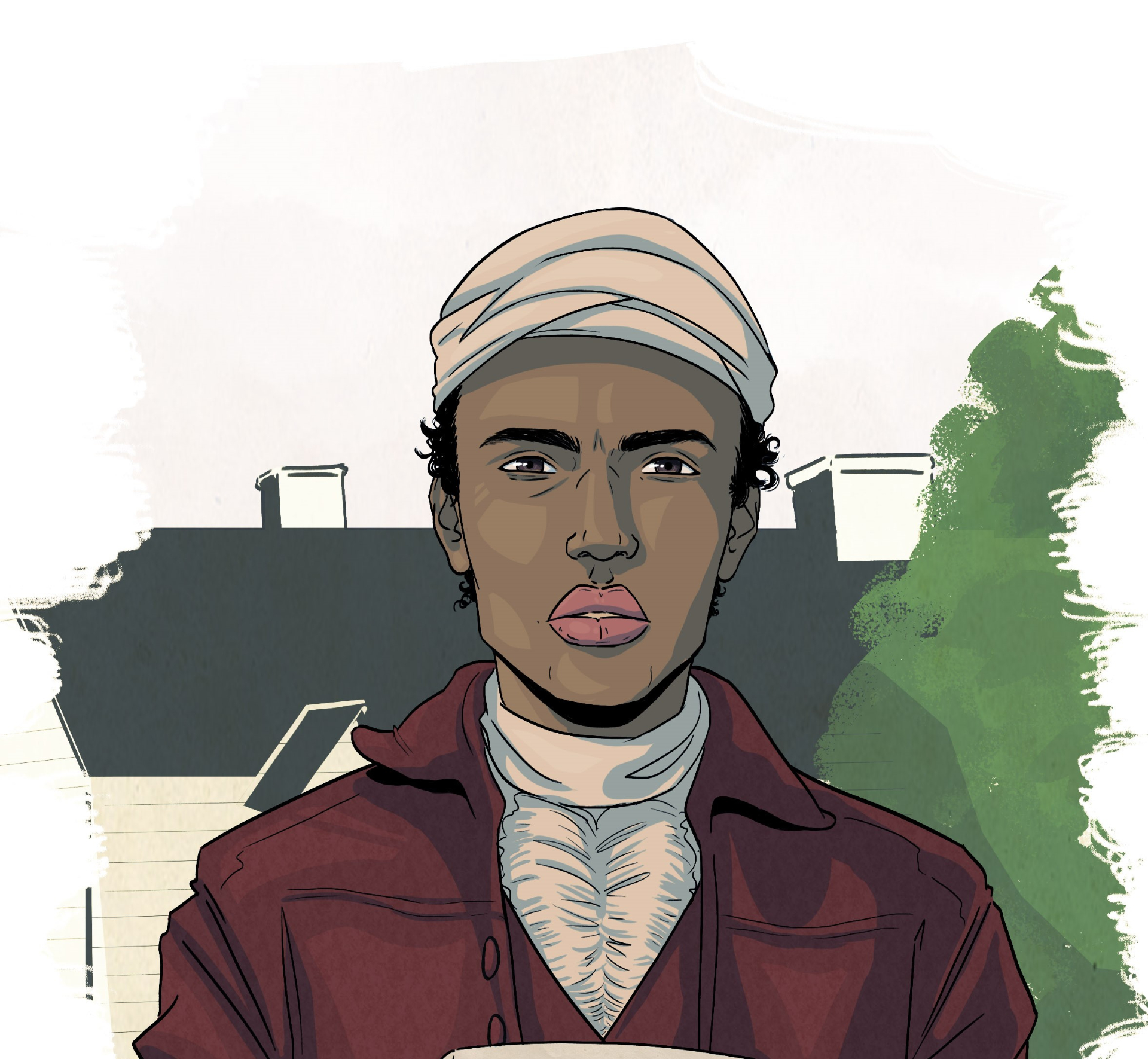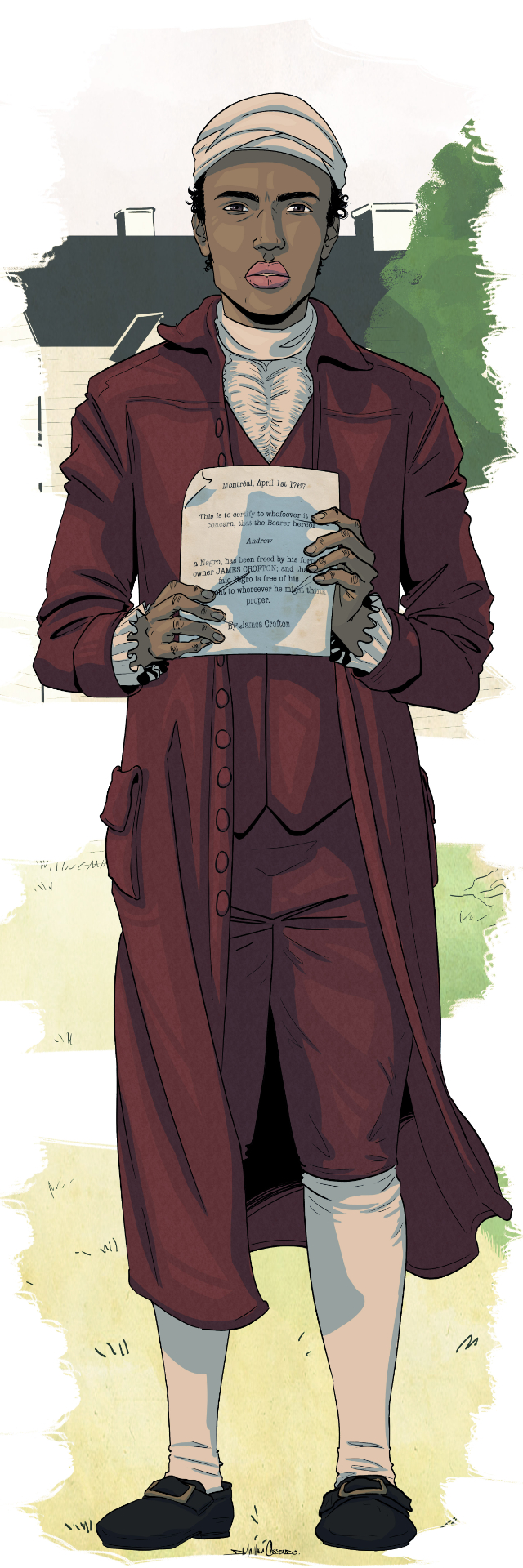
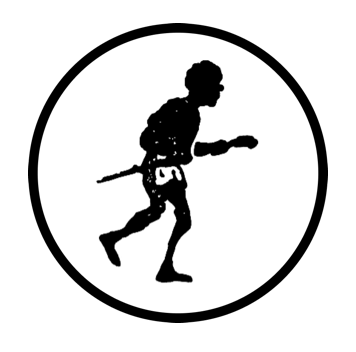 13
13Andrew
Andrew escaped on May 3, 1767, from the innkeeper James Crofton in Montreal. The escape was published in the Quebec Gazette on the 14th of the same month. Of mixed race, Andrew was said to have been born in Maryland and 23 years old.
He was described as having crooked fingers, a "remarkable large mouth" and "thick lips," an image not unlike the caricatures of people of African descent.
An $8 reward was offered for his return.
Like many other multilingual slaves, he spoke English and French well, and a little Dutch and Erse.
The postscript at the end of the announcement specified that he was “remarkable for being clean dress'd and wearing a Handkerchief tied round his Head”. This particular trait connects him to both sides of the Atlantic Ocean, whether it be the turbans worn in Africa or the headscarves found in the cities and plantations of the Americas.
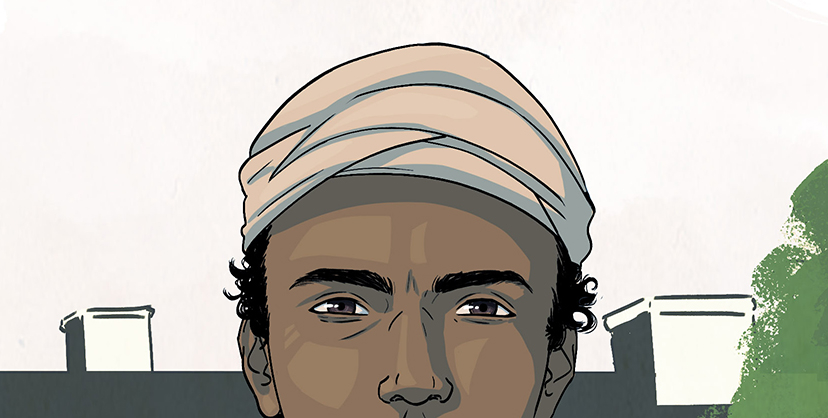
In the 1780s, the Spanish Governor of Louisiana made it mandatory for Black women to cover their heads so that they would not outdo White women with the elegance of their hairstyles. What came to be known as the Tignon laws (the tignon is the name given to these headscarves) backfired, because Black women began to adorn their scarves with great creativity.
Liberty papers
One of the most significant elements of this announcement is the statement that Andrew "[was] supposed to have with him forged Certificates of Freedom and Passe." This suggests that his escape was premeditated.
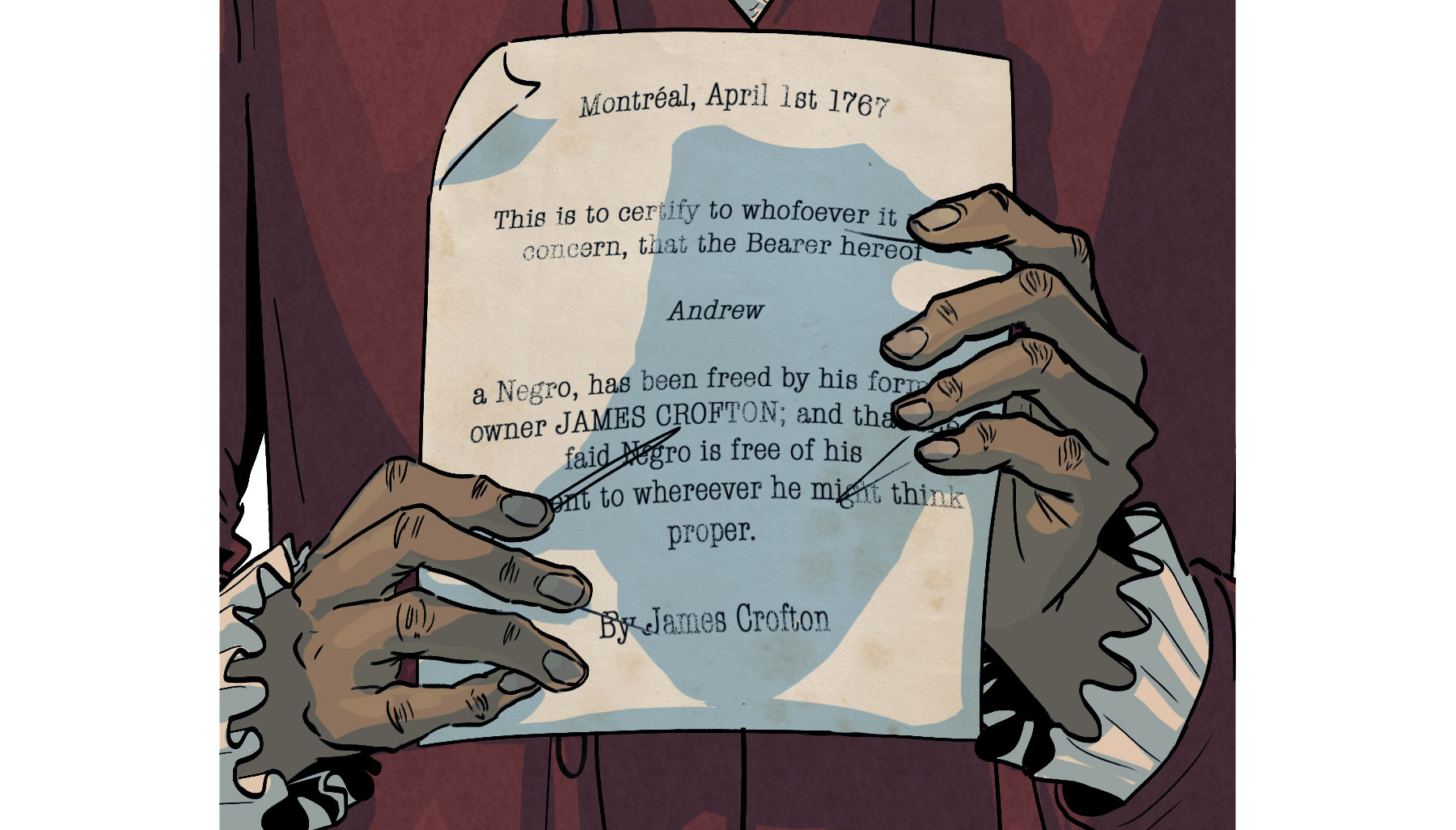
The illustration of his forged "Certificate of Freedom" is inspired by a passport issued in New York on April 21, 1783, to Cato Ramsay for travel to Nova Scotia or elsewhere. Ramsay was a former slave who had taken refuge behind the British lines during the American Revolution of 1775. Several thousand slaves and free Afro-descendants and Africans sided with the Empire during the War of Independence. Many of these Black Loyalists settled in Nova Scotia and Upper Canada.
According to researcher Frank Mackey in his book Done with Slavery, Andrew was the same slave who, a few years earlier, had contested the legality of his servitude in court, claiming that his master at the time was holding him illegally. However, he was unable to prove this statement.
